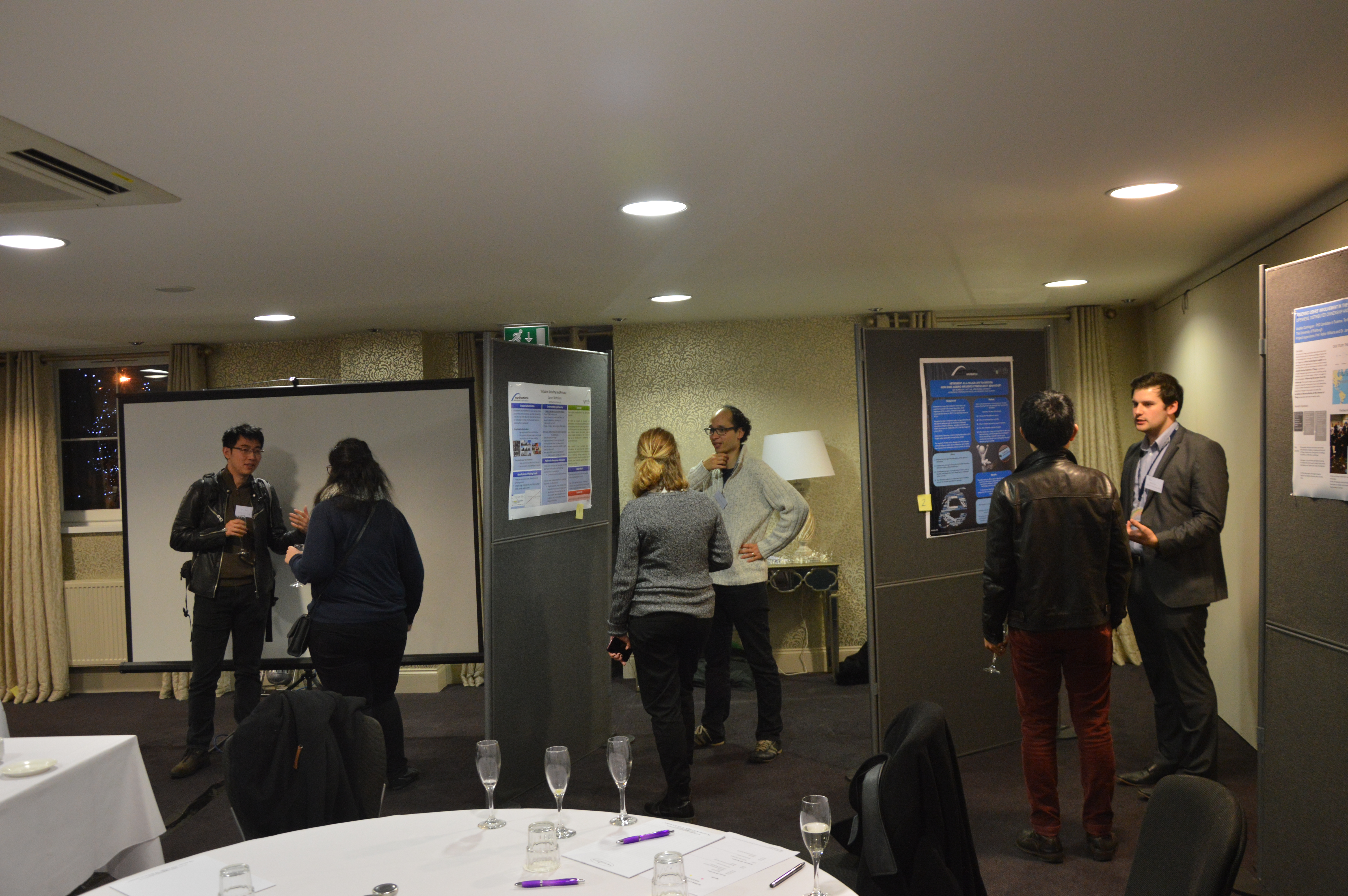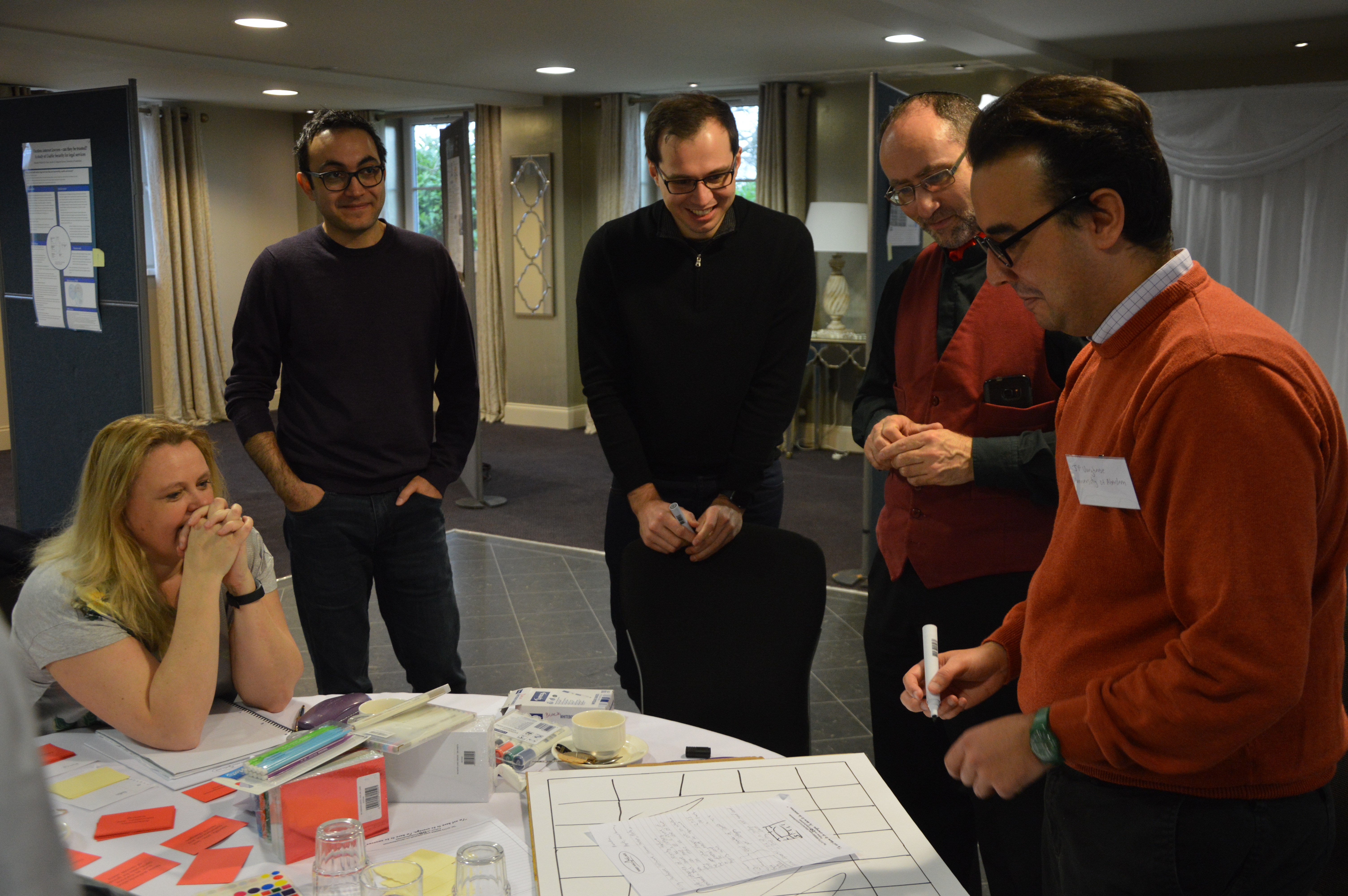
The PACTMAN project recently hosted the first of two networking and development events for PhD students and early career researchers. In this blog post, one of the attending research associates Naushin Nower reports her experiences…
The workshop provided a platform for attendees to present and explore the real world problems and solutions from interdisciplinary research (Computer science, Psychology, Law etc.) that concentrated in the areas of privacy, trust, identity, and security. Along with keynote speech from Dr. David De Roure, various other interactive workshops were organized to sharpen the state-of-the-art knowledge and to build a community by bringing UK-based young scientists together. Over thirty Ph.D. students and early career researchers participated from fifteen universities across the U.K. A further nine experts from across academia led the five interactive workshops.
Dr. David De Roure, Professor of e-Research at the University of Oxford, presented the keynote. As he explored multiple disciplines (social science, humanities, Internet of things and distributed systems and social computing), he provided an inspirational discussion about different aspects of the “social machine” and its relation with Internet of things (IoT). Defining social machines as any web-based socio-technical system where both human and machine are the participants, some common examples include Facebook, Twitter (social websites) and crowdsourcing sites where behaviour is constructed socially and website acts as an interface between human and machine. In contrast to these social machines that connect people, everyday IoT devices connect and interact with each other. The social machine can provide a framework for evaluating the benefits and risk of IoT by utilizing the thing learned from the social network. Since the social machine is already applied in social media, it can provide an opportunity for IoT as well, where the new social process, behaviour and unintended situations can be visualized.

Multiple interactive workshops on recent issues and emerging research related to privacy, trust, and security were arranged in the event, including “Does the GDPR help or hinder trust, identity, privacy, and security?” conducted by Dr. Tristan Henderson and Judith Rauhofer. This workshop was about the new data protection regulations and its prospects. The new General Data Protection Regulation (GDPR) will be effected form 25 May 2018 and replaces the previous Data Protection Directive 95/46/ec. It is intended to provide a better data protection and security by many stricter obligations on data. One of the core functionalities of GDPR is to protect personal data in global prospect. However, it seems that many new laws may create negative effects on personal data protection through excessive complexity and interpretative problems. For example, new requirements bring extra record maintaining obligations that contain personal data and as a result, impose additional security risk for keeping and maintaining personal data privacy. Furthermore, the legislation does not fit for the micro and small business situations. Finally, many small business services do not have strong security records for data privacy. These problems and existing challenges in GDPR will likely become important areas for exploration and design.